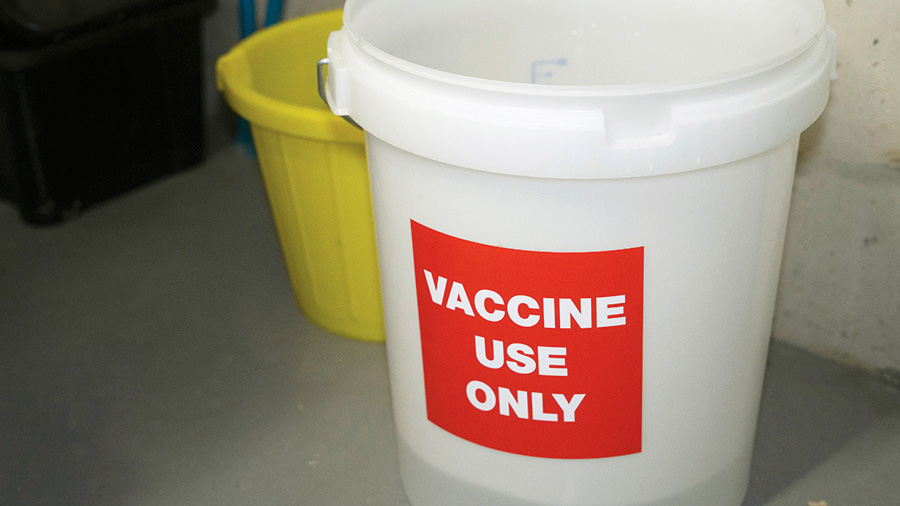Batch failure and Brexit blamed for vaccine shortages
 Use dedicated equipment for vaccination, and ensure it is clearly labelled
Use dedicated equipment for vaccination, and ensure it is clearly labelled Batch failures resulting in large volumes of some livestock vaccines being discarded are thought to be a principal reason for recent UK supply shortages.
Farmers have reported being unable to buy some key vaccines used for immunising livestock, notably those used for offering protection against clostridial diseases, as well as having to pay some inflated prices.
See also: Shortages of key vaccines threaten flock health
Dawn Howard, chief executive of the National Office of Animal Health (Noah), representing animal medicine manufacturers, said this is likely due to batch failures.
“These are biological systems, so even though they have been manufactured in the same way over many years, there may be some local reasons why something has not worked properly at that particular time, which would then affect a particular vaccine,” she told the Farmers Weekly Podcast.
“Unfortunately it does happen and, for the manufacturers, everything could have gone as well as expected all the way through the manufacturing process and at the last minute something goes wrong.”
Border friction
Vaccines require strict temperature-controlled storage and even minor deviations can result in product failures.
But border friction resulting from Brexit could be at play, too.
Donal Murphy, Noah’s head of technical and regulatory affairs, said this was creating a “degree of stickiness” in the supply chain.
If vaccines that require specific storage conditions are sat in a lorry waiting to cross the Channel and there is a delay, it can mean that the batch is no longer usable.
Mr Murphy therefore called on the government to do everything possible to ensure frictionless trade in vaccines, notably by mirroring EU regulatory controls.
Since Brexit, the EU has introduced new laws around licensing, which the UK no longer matches.
The UK government is currently carrying out a review of those regulations and will shortly be putting forward proposals for new GB veterinary medicine regulations.
“We want those to remain as closely aligned to the EU as possible because, as soon as things start to diverge even a little bit, it puts up another barrier, or delays things coming into the UK, or it adds cost for someone else along the line,” said Ms Howard.
